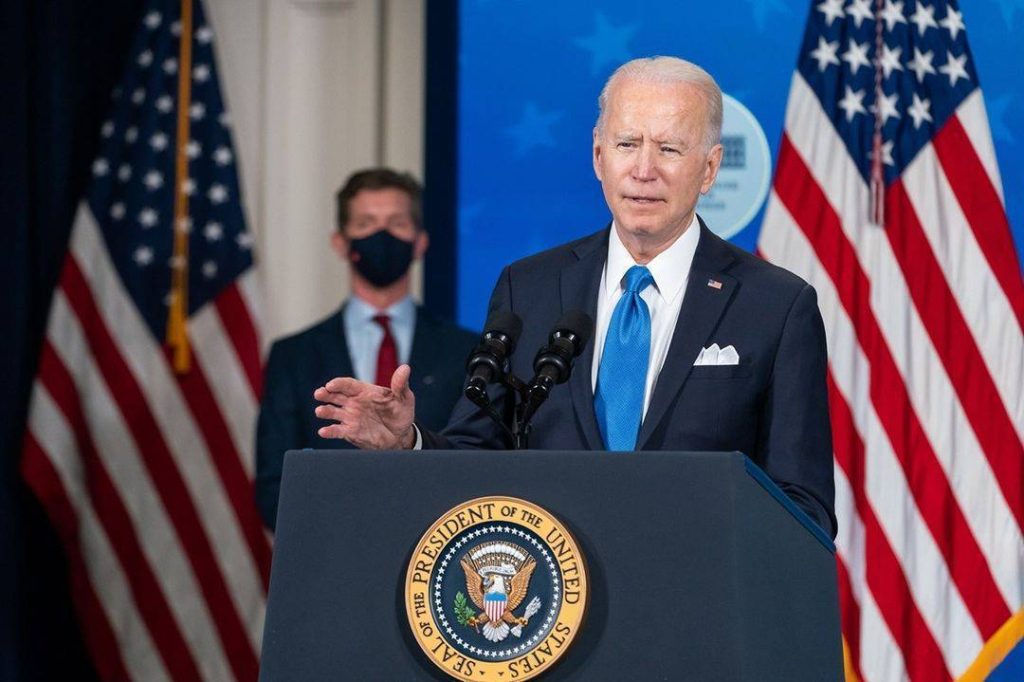On Tuesday, thousands of Afghans staged demonstrations, denouncing Biden’s decision and demanding the return of the frozen assets to the war-torn country….reports Asian Lite News
The Afghanistan Chamber of Industries and Mines has described the recent decision of US President Joe Biden to split the frozen assets of the war-torn nation as unjust.
“On behalf of 5,000 factories and hundreds of mine extracting companies, I today describe the recent decision of President Biden as unjust and stealing our national assets and we denounce it,” acting chairman of the association Al-Hajj Sakhi Ahmad Paiman told reporters here on Thursday.
Paiman said some 400,000 people directly and around 1.5 million others indirectly are working for the factories, mines and businesses run by the Afghanistan Chamber of Industries and Mines, reports Xinhua news agency.
“America claims itself as a defender of human rights and freedom. The claim would be undermined at home and abroad if it continues to hold or steal Afghanistan’s assets under any pretext,” Paiman said.

On Tuesday, thousands of Afghans staged demonstrations, denouncing Biden’s decision and demanding the return of the frozen assets to the war-torn country.
Biden on February 11 signed an Executive Order allowing some of the frozen assets from the country’s central bank, the Da Afghanistan Bank (DAB), to be distributed as assistance and to victims of the September 11, 2001 terror attacks.
According to the White House, while “the administration will seek to facilitate access to $3.5 billion of those assets for the benefit of the Afghan people”, “more than $3.5 billion in DAB assets would remain in the US and are subject to ongoing litigation by American victims of terrorism”.
When Kabul fell to the Taliban in August 2021, Afghanistan had over $9 billion in reserves held in the name of DAB outside of the country.
This included $7 billion in reserves held in the US, with the rest of the reserves largely being in Germany, the UAE, Switzerland, and a couple of other states.

Leave a Reply